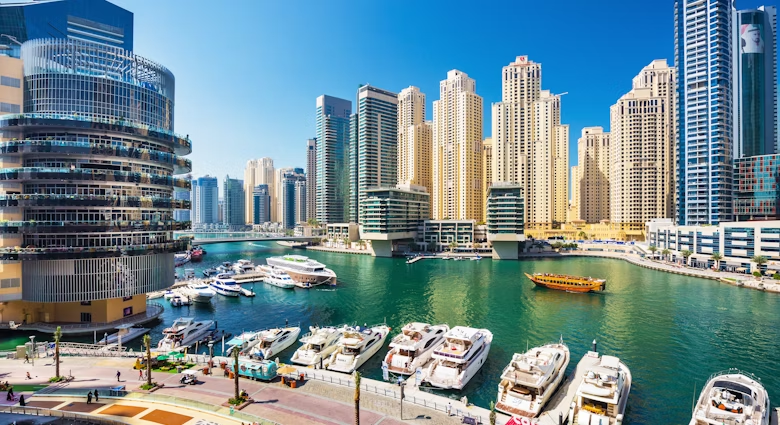Introduction
Dubai has consistently positioned itself as a top global destination for entrepreneurs, startups, and international businesses. With its strategic location, world-class infrastructure, and transparent legal framework, it has long provided a business-friendly environment that minimizes regulatory burdens and offers attractive incentives.
One of the most powerful of these incentives has been the UAE’s historic status as a tax-free haven. However, that landscape is evolving. As part of its commitment to align with international tax standards and increase non-oil revenue, the UAE introduced a federal corporate tax effective from June 1, 2023.
The good news? Dubai’s free zones still offer a compelling opportunity for businesses to legally avoid the 9% corporate tax — provided they meet certain conditions. This article explores how you can take full advantage of Dubai’s free zone benefits and remain fully compliant while optimizing your tax burden.
Understanding the UAE’s Corporate Tax Framework
The UAE’s new corporate tax applies to all businesses generating taxable income exceeding AED 375,000 (around $102,000 USD). Any income beyond this threshold is taxed at a flat 9%. This change impacts both mainland and free zone companies.
However, the government has built flexibility into the system to preserve the UAE’s competitive edge. Notably, many companies operating within UAE free zones can still enjoy a 0% corporate tax rate — but only if they qualify as a “Qualifying Free Zone Person” (QFZP) under the new tax law.
This status is not granted automatically. It depends on several factors including the nature of your income, your operational structure, and compliance with specific rules.
What Are Dubai Free Zones?
Free zones are special economic areas in Dubai designed to attract foreign investment by offering perks such as:
- 100% foreign ownership (no need for a local partner)
- Full repatriation of profits and capital
- No import/export duties within the zone
- Access to high-quality infrastructure and streamlined licensing
- Exemptions from personal income tax and value-added tax (VAT) in many cases
Dubai has over 30 different free zones catering to a wide range of industries, from finance and media to logistics, technology, and health care.

What Is a Qualifying Free Zone Person (QFZP)?
To legally avoid the 9% corporate tax in Dubai’s free zones, your company must qualify as a QFZP. That means it must:
1. Have Adequate Economic Substance in the Free Zone
This means your company needs to demonstrate a real and functional presence inside the free zone. That includes:
- A physical office space appropriate for your business activities
- An adequate number of full-time employees operating in the zone
- Sufficient operational expenses spent within the UAE to support your activities
2. Earn Only “Qualifying Income”
Qualifying income includes:
- Revenue generated from other companies based in free zones
- Revenue from foreign clients (i.e., clients outside the UAE)
- Income from specific approved activities, such as manufacturing, warehousing, logistics, consulting, and certain financial services
If your company earns income from UAE mainland clients or engages in activities outside the approved list, that portion of income may be taxed at 9%.
3. Meet All Compliance and Reporting Requirements
Your company must:
- Register for corporate tax with the UAE’s Federal Tax Authority
- Maintain detailed accounting records
- File annual corporate tax returns
- Comply with Economic Substance Regulations (ESR), if applicable
Failure to meet any of the above can disqualify your company from QFZP status and make you liable for the full 9% tax on all income.
Qualifying vs. Non-Qualifying Income
Understanding the distinction between “qualifying” and “non-qualifying” income is essential.
Qualifying Income:
- Services sold to clients outside the UAE
- Services or goods provided to other free zone businesses
- Revenue from certain approved sectors or activities
Non-Qualifying Income:
- Business with clients located in the mainland UAE, unless done through a mainland-licensed distributor
- Any activity not included in the approved qualifying list (such as physical retail, some construction activities, or personal services like salons or repair shops)
If you earn both qualifying and non-qualifying income, the 9% corporate tax will apply only to the non-qualifying portion — as long as you still meet the requirements to be a QFZP.
Practical Scenarios
Let’s say you run a digital marketing agency from a Dubai free zone.
- You serve international clients and a few other UAE-based free zone companies
- You have a small office in the free zone, employ two staff, and maintain books
- You’ve registered with the tax authority and file annual returns
In this case, your business would qualify for 0% corporate tax.
Now imagine your agency also serves clients in the Dubai mainland. That income would likely be subject to 9% tax, unless you deliver the services via a properly licensed mainland distributor or entity.

Why Businesses Still Prefer Free Zones
Even with the new tax regulations, Dubai free zones continue to offer significant advantages beyond just tax savings:
- Simplified setup processes
- Access to industry-specific clusters (like DIFC for finance or DMC for media)
- Faster visa issuance and immigration support
- No restrictions on hiring foreign talent
- Strong privacy laws and asset protection
Moreover, setting up in a free zone often costs less than establishing a mainland company, which requires renting physical space, managing more compliance, and dealing with additional regulations like WPS (Wage Protection System).
Compliance: The Hidden Cost of Non-Compliance
Don’t make the mistake of thinking that once you’re set up in a free zone, you’re automatically exempt. The Federal Tax Authority is very clear:
- Non-compliance with ESR or record-keeping requirements can result in heavy fines
- Filing errors, failure to submit returns, or not maintaining economic substance could result in retroactive tax assessments
- Misreporting income may trigger investigations or audits
These risks make it crucial to work with reliable consultants or accountants who can help you stay compliant and optimize your setup.

Should You Still Consider Free Zones in 2025 and Beyond?
Absolutely — as long as:
- Your business model doesn’t rely heavily on UAE mainland customers
- You want a flexible and cost-effective license for international operations
- You’re okay with maintaining a real (not just virtual) presence in Dubai
- You want to avoid the 9% tax legally while remaining fully compliant
Final Thoughts
The UAE’s introduction of corporate tax might seem like a major shift — and in many ways, it is. But for the vast majority of small and medium businesses operating in or from Dubai’s free zones, the impact is minimal if you plan properly.
By becoming a Qualifying Free Zone Person and ensuring compliance, you can still take full advantage of Dubai’s powerful free zone benefits and legally avoid the 9% corporate tax.
If you’d like help figuring out the best setup for your business, here’s our article on Top 5 Business Setup Agencies in Dubai

